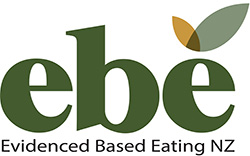Breast cancer
Breast cancer is the most common cancer for New Zealand women and is the third most common cancer overall. 80% of people with breast cancer survive 10 years or more, although New Zealand still has more than 650 women die from it every year. Contrary to popular belief, most women who develop breast cancer have no relatives with the disease. This demonstrates that lifestyle factors play a significant part in the development of breast cancer.
Research has linked the high fat content and hormones in milk, cheese, ice cream, and other dairy products to a greater risk of breast cancer. Less than a cup of milk a day showed a steep rise in the risk of breast cancer, whilst at 2-3 cups per day, the increased risk is 70 percent and 80 percent. Researchers say the possible reasons for this association between breast cancer and dairy milk maybe the hormone content of the milk. Breast cancer in women is a hormone-responsive cancer. Added to this, dairy products and other animal protein, such as meat and eggs, are associated with the body producing higher levels of a hormone in the blood, called insulin-like growth factor 1 (IGF-1), which is thought to promote a number of cancers including breast cancer. IGF-1 has been found to be one of the most potent substances to the growth of breast cancer cells in vitro. This association between red and processed meat intake and increased risk of breast cancer has been proven to begin as early as adolescence.
There has been evidence that as little as one alcoholic drink a day increases breast cancer risk. The more alcohol a person drinks, particularly the more alcohol a person drinks regularly over time, the higher their risk of developing alcohol-associated cancer. Alcohol can effect breast cancer risk by damaging DNA in cells. Alcohol also increases levels of estrogen and other hormones associated with hormone-receptor-positive breast cancer. Although there have been studies indicating drinking a glass red wine may be beneficial to heart health, the protective ingredient, a polyphenol called Resveratrol, is found in the skins of red grapes, so the benefit comes from eating the red grapes themselves or drinking grape juice, not from drinking red wine.
Foods that are most beneficial for breast health are whole plant foods that are high in fiber, vitamins and minerals. Fiber from fruits, vegetables, beans and grains are particularly beneficial as it helps eliminate excess estrogens. Cruciferous vegetables such as broccoli, cauliflower, collards, cabbage and kale are protective in the fight against all cancers including breast cancer. Soy based foods, such as tofu, tempeh, edamame and soy milk have a proven protective effect on breast health, as does Nori seaweed, which are the sheets wrapped around your sushi. But the number one vegetable at surpressing the activity of the enzyme used by the breast cancer cells to undermine our defenses, are plain white button mushrooms. So the more fruits vegetables, beans and grains you can get into your diet, the more your overall health as well as your breast health will benefit.
Resources
Breast Cancer Foundation NZ
Breast Cancer
Physicians Committee for Responsible Medicine
New study associates intake of dairy milk with greater risk of breast cancer
Loma Linda University Health
Alcohol and Cancer Risk Fact Sheet
National Cancer Institute
Drinking Alcohol
Breastcancer.Org
Breast Cancer and Alcohol: How Much is Safe?
NutritionFacts.org
Quadrupling Breast Cancer Survival
NutritionFacts.org
Research papers
https://pubmed.ncbi.nlm.nih.gov/33004231/
Dairy, Soy, and risk of breast cancer: those confounded milks / International Journal of Epidemiology / Oxford Academic
https://academic.oup.com//ije/advance-article-abstract/doi/10.1093/ije/dyaa007/5743492?redirectedFrom=fulltext
Effect of low-fat diet on breast cancer survival: a meta-analysis
https://pubmed.ncbi.nlm.nih.gov/24606431/
IGF-1 and breast cancer
https://pubmed.ncbi.nlm.nih.gov/15562831/
The role of the insulin-like growth factor-1 system in breast cancer/ Molecular Cancer
https://molecular-cancer.biomedcentral.com/articles/10.1186/s12943-015-0291-7
Red meat consumption during adolescence among premenopausal women and risk of breast cancer
https://pubmed.ncbi.nlm.nih.gov/18669582/
Soy food intake and breast cancer survival
https://pubmed.ncbi.nlm.nih.gov/19996398/
A case-controled study on seaweed consumption and the risk of breast cancer
https://pubmed.ncbi.nlm.nih.gov/19968892/
Anti-aromatase activity of phytochemicals in white button mushrooms
https://cancerres.aacrjournals.org/content/66/24/12026.long
